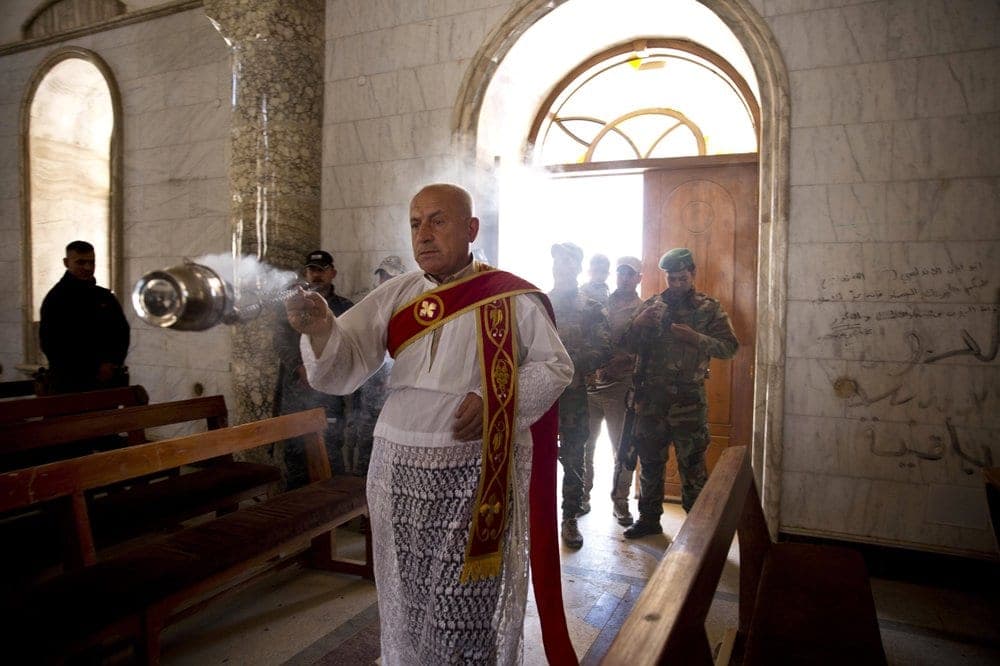LEICESTER, United Kingdom – Religious freedom has deteriorated in several countries during the first half of 2019, according to a statement published Oct. 22 by the British Foreign Office.
The relatively short statement was a follow up to the 2018 Human Rights and Democracy Report published by the British government in June. The statement gave an updated assessment of the 30 “priority countries” in which the Foreign Office had noted particular concern about human rights issues, and felt “the UK can make a real difference.”
The 30 human rights priority countries are: Afghanistan, Bahrain, Bangladesh, Burundi, Central African Republic, China, Colombia, North Korea, Democratic Republic of Congo, Egypt, Eritrea, Iran, Iraq, Israel and the Occupied Palestinian Territories, Libya, Maldives, Myanmar, Pakistan, Russia, Saudi Arabia, Somalia, South Sudan, Sri Lanka, Sudan, Syria, Turkmenistan, Uzbekistan, Venezuela, Yemen and Zimbabwe.
Although the report encompassed the entirety of human rights concerns, it particularly pointed out instances of religious persecution, harassment, and discrimination in several countries.
The statement said the overall human rights situation in Pakistan continues to deteriorate, with religious minorities suffering in particular.
“The situation for religious minorities continues to be very challenging and deeply concerning, with widespread intolerance, violence, and discrimination, including against Christians, Ahmadis, Hindus, and Shias,” the report says.
“There have been some positive developments, notably the Supreme Court’s January judgement upholding the acquittal of Asia Bibi of blasphemy. This was a welcome positive step, as was the issuing of thousands of visas to Indian Sikhs, allowing them to make the sacred pilgrimage journey to Pakistan following the opening of the India/Pakistan Kartarpur Corridor at the end of last year,” it continued.
The statement noted that in Sudan, while restrictions on Christian school opening days were dropped in January, “there are ongoing challenges to Freedom of Religion or Belief, including public order and guardianship laws, which have a disproportionate effect on Christian women.”
The Foreign Office also expressed concern about growing restrictions on freedom of religion or belief in China, “including reports that authorities are tightening control over how certain religions are practiced.”
It also said there “was no improvement in the dire human rights situation” in North Korea, which is at the top of Open Doors’ annual ranking of the 50 countries where Christians experience extreme persecution and top of the Global Slavery Index, noting “the regime continues to exercise total control over freedom of expression and Freedom of Religion or Belief.”
The statement also highlighted restrictions on religious freedom in Russia, Turkmenistan, Afghanistan, Yemen, and Libya.
However, the Foreign Office noted improvement in a few countries.
“Freedom of Religion or Belief in Bahrain is legally protected in society. Although there is more to be done, EU Special Envoy Jan Figel earlier this year observed that religions are not just tolerated but readily accepted by Bahraini society,” the report says.
It also said “modest progress” is continuing to be made on religious freedom in Egypt, pointing out President Abdel Fattah Sisi inaugurated the largest cathedral in the Middle East on Jan. 6, and the continued progress on licensing church buildings under Egypt’s Church Building Law.
The British government has stepped up its engagement on the issue of international liberty, and 2018 saw the creation of the post of Prime Minister’s Special Envoy on Freedom of Religion or Belief.
In December, the Foreign Office announced it would sponsor a report on Christian persecution around the world, which was published this summer.
Follow Charles Collins on Twitter: @CharlesinRome
Crux is dedicated to smart, wired and independent reporting on the Vatican and worldwide Catholic Church. That kind of reporting doesn’t come cheap, and we need your support. You can help Crux by giving a small amount monthly, or with a onetime gift. Please remember, Crux is a for-profit organization, so contributions are not tax-deductible.














